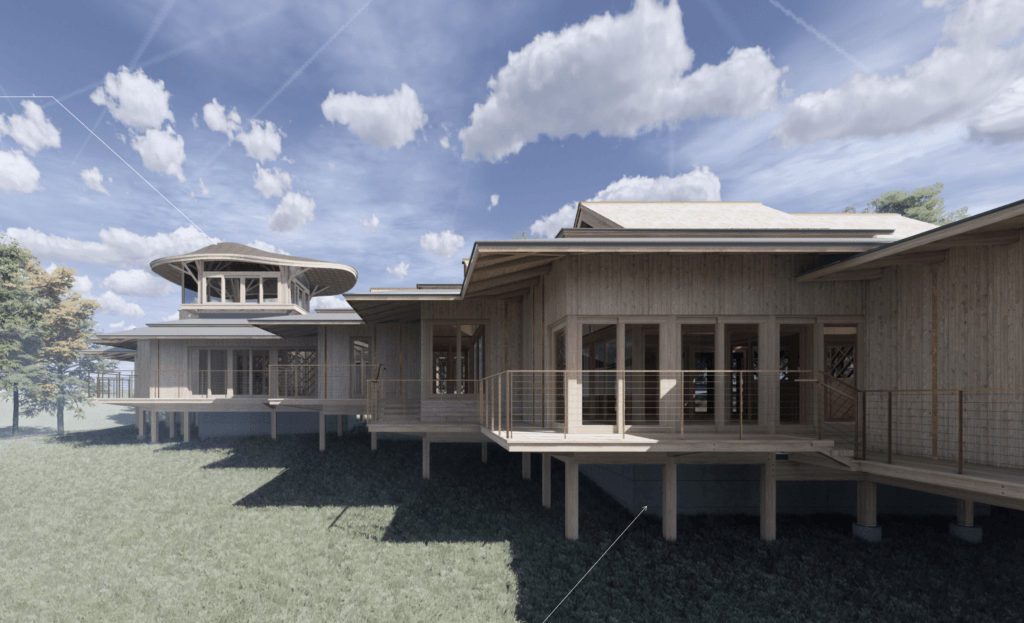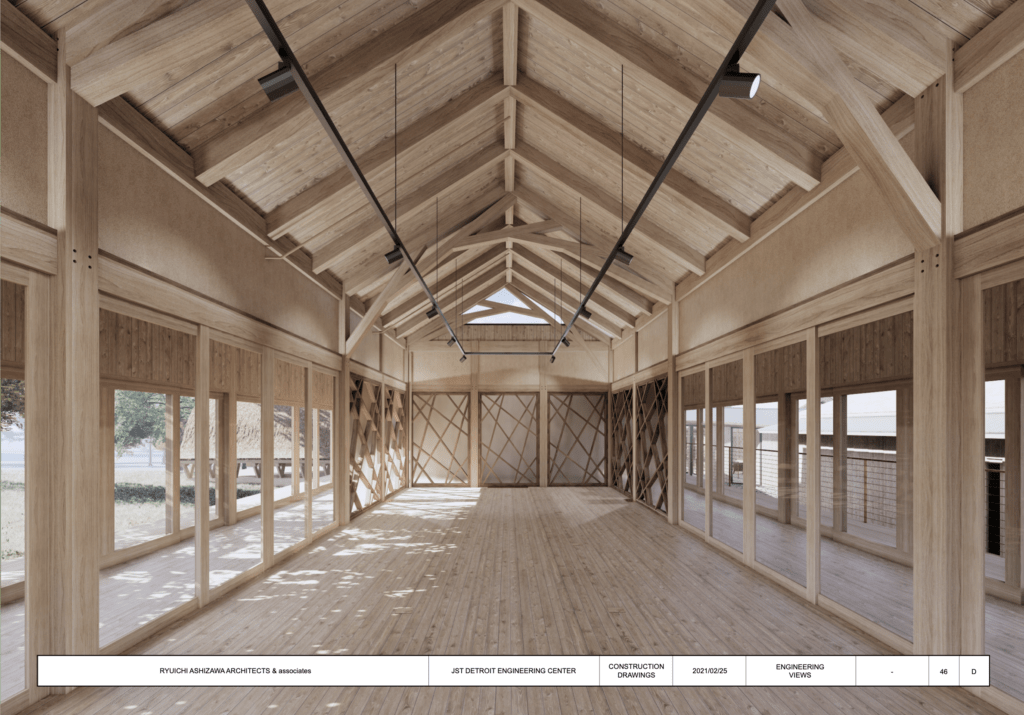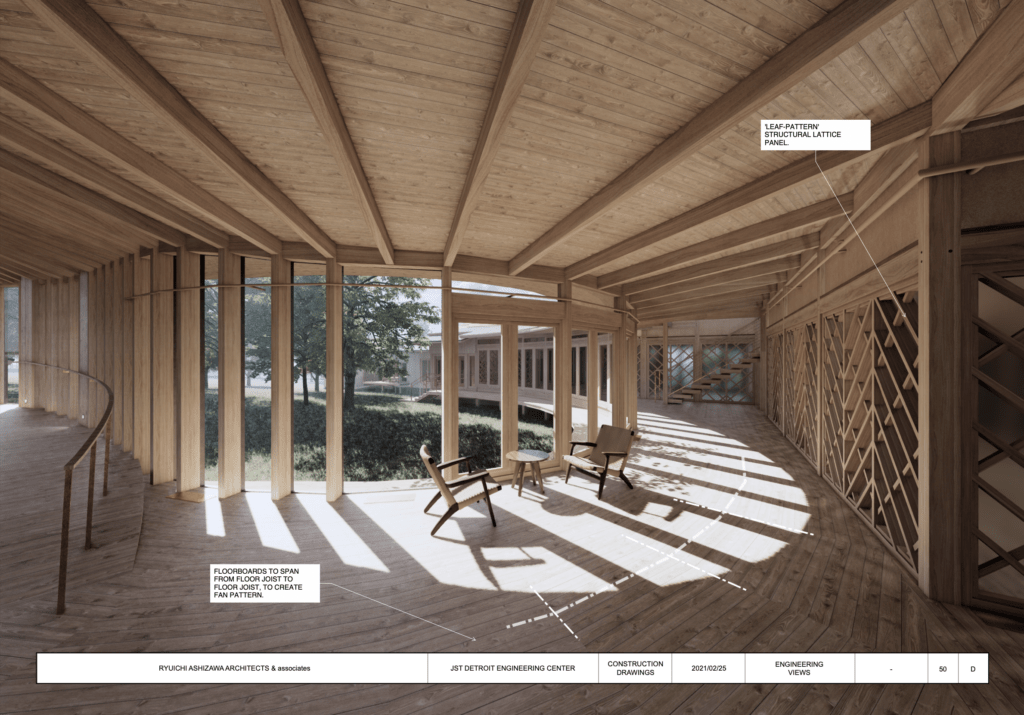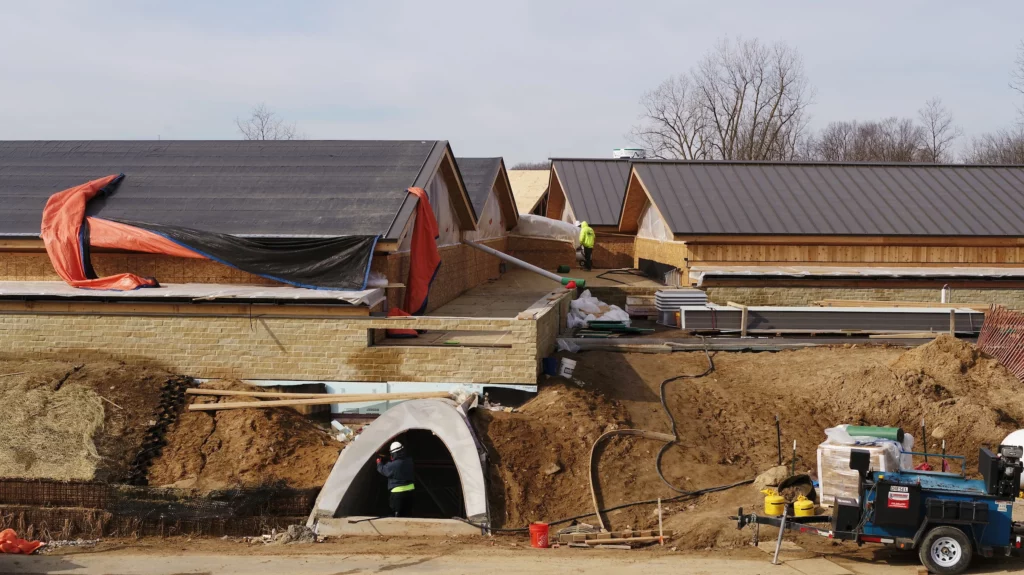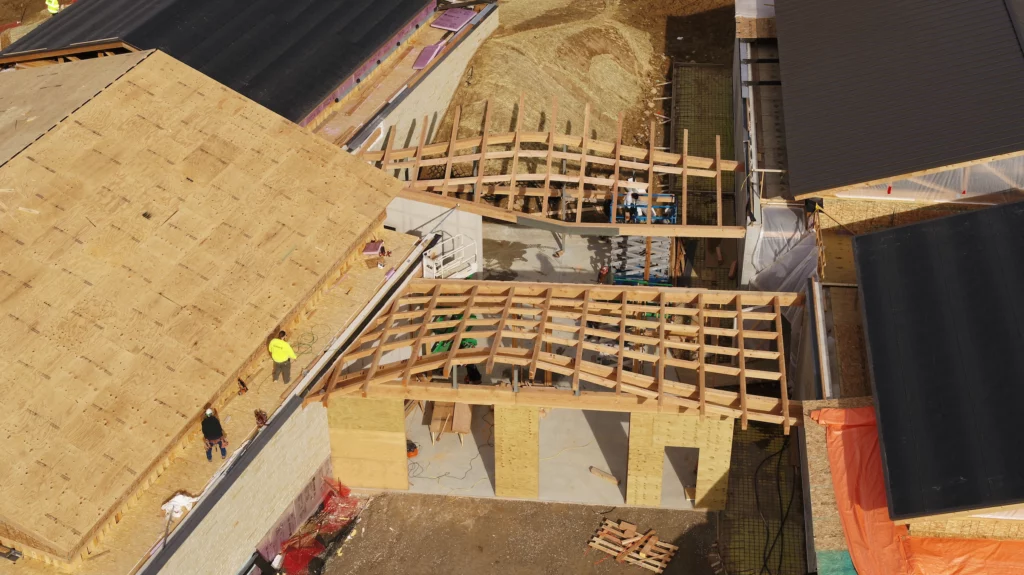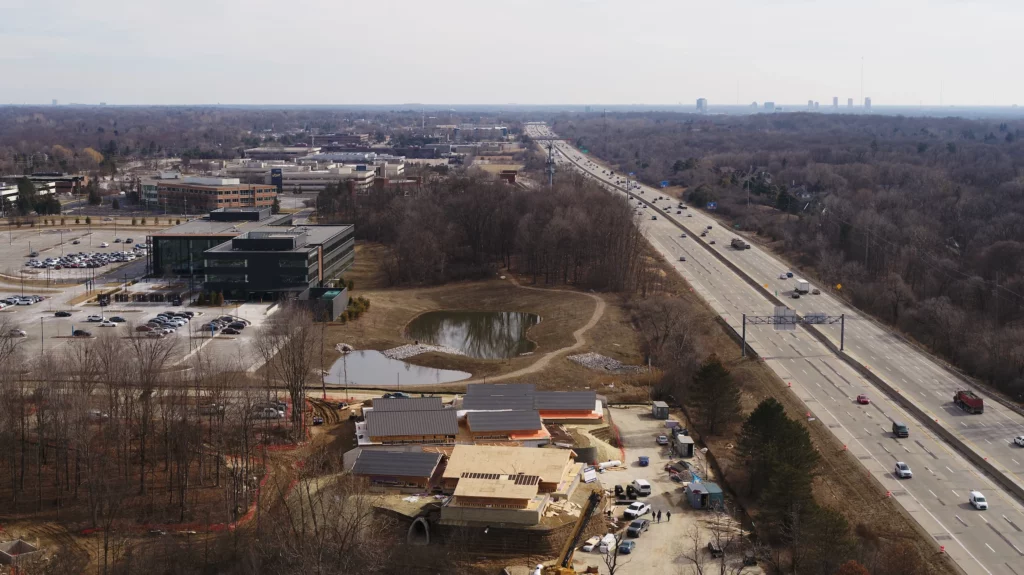Cunningham-Limp announces details of Japanese Solderless Terminals (JST) 10-acre headquarters in Farmington Hills; endeavor is Michigan’s most holistically sustainable commercial project
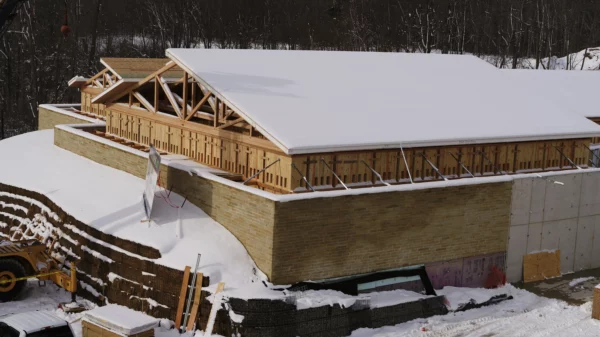
“…A craftsman’s approach on a commercial scale”
Novi, Mich. — March 2, 2023 —In what is certain to become the benchmark for ultimate sustainability in corporate design and construction, Novi-based Cunningham-Limp is pleased to announce the details of a 10-acre, six-building project for Japan Solderless Terminals (JST), the global leader in the connection industry. The sprawling parcel at 35917 12 Mile Road in Farmington Hills, which began development in 2019 after years of detailed planning, is slated to introduce the first completed building – the Test Lab – in fall 2023.
An homage to the forest and Japanese culture and design – and the most holistically sustainable project ever seen in Michigan – the chief elements of the development will portray the idea of harmony: between people and the ecosystem; Japanese and American cultures; and the preservation of nature in a built environment. All materials will be naturally sourced as part of the fundamental theme for this project. In striking contrast to traditional construction methods and materials, there will be no drywall, paint, structured steel, catch basins, storm pipes, carpet, or other synthetic products used at all, according to Cunningham-Limp Project Manager Jake Gardner.
“This project completely flips the traditional method of construction. It’s a craftsman approach on a commercial scale,” Gardner said. “The project is about using natural products to tell a story of cohabitation with the ecosystem. It just happens to be unfolding in a corporate setting.”
The JST project first came to the attention of Cunningham-Limp through its President, Samuel J. Ashley Jr., LEED AP, who was immediately intrigued by the opportunity to be a part of something special in a commercial corridor using a completely sustainable methodology that will have a positive impact on the community.
“Years ago, I was invited to an introductory meeting to learn about the strategy and vision for this development. Given what was shared, my first reaction was disbelief. I couldn’t imagine that something of this thought, vision, and investment would ever be undertaken in our region,” Ashley said. “After a couple more introductory meetings, we began building relationships with the collective organizations participating in the project, which followed with a proposal for Cunningham-Limp to assist in the early planning stages. Little did I know that those first few meetings would turn into six years of strategic and thoughtful planning and preparation to activate the project physically on the site.”
JST, which manufactures a variety of connectors, terminals, and splices, is currently located in Farmington Hills, just around the corner from the new site. According to Mark Rei, Executive Manager, Global Sales and Business Development Leader at JST, the development’s efforts to be in harmony with nature and prevent disruptions to the site’s ecosystem and biodiversity will also benefit JST team members.
“Beyond the infrastructure, we want our employees to find harmony with the natural environment as well. JST will be a place where our people are encouraged to spend time outdoors and appreciate the surrounding forest throughout their workday. It is certainly the prominent aspect of this whole design and it’ll be a unique experience compared to typical corporate culture in America,” Rei said.
Critical to the project is the preservation of the forested land, the ecosystem, and the animals indigenous to the site, with the ultimate goal of optimal coexistence with humans and nature. An incredibly complex testament of patience that requires intensive and ongoing evaluation, examples of sustainable efforts include:
- Harvesting an estimated 90 trees that were tagged and removed to clear space for the project and will be repurposed in building construction and furniture. The process of harvesting and restoration of the trees is symbolic in its alignment with the project’s mission of telling the story of the forest for generations to come.
- Saplings from the 2019 groundbreaking were taken to a farm in Williamston, Michigan, where they can grow and ultimately be re-planted on the property. The replanting is projected to begin in spring 2024.
- An expansive geothermal field was created throughout the campus by installing 72 wells 450 feet below the ground to regulate the building temperatures using the world’s most energy-efficient temperature system.
- Efforts to rid the area of invasive species that were not present in a 1940s era detailed overview of the property have been deployed in order to restore its original ecosystem.
- A detailed study of migration patterns of species native to the area was undertaken prior to the beginning of construction that resulted in what is now Animal Road, which will accommodate the study’s findings.
- Numerous workarounds for wetlands have been deployed so as not to disturb their natural habitat.
- With a goal of utilizing just the land needed, only approximately four acres of the 10-acre site have been disturbed.
- Following the Japanese approach to design, every element has meaning and purpose.
- Shunning traditional construction, features include thatched and green roofs, naturally harvested stone, and bonderized metal.
In perhaps the most unusual of its sustainability efforts, the interior of one noted building will be devoid of electricity or furniture, with a domed roof and timber frames wound tightly by instrumental strings so that when the wind blows, music will echo throughout the property.
Full project completion is anticipated in 2025. A detailed description of the JST project can be viewed here. Aerial photos can be viewed here, and a video of the project is available here.
To learn more about this project, check out the following articles it has been featured in: in the DBusiness News, the Detroit News, The ReJournals, Hometown Life, Canada Construction and Connect, WWJ News Radio, and Construction Business Owner (CBO) Magazine.
About Cunningham-Limp
Headquartered in Novi, Michigan, Cunningham-Limp is a full-service construction management organization focused on building better communities. Led by a team of engineers, construction professionals, real estate experts and financial advisors, Cunningham-Limp delivers solutions by actively managing projects from concept through completion. Learn more at our website.


